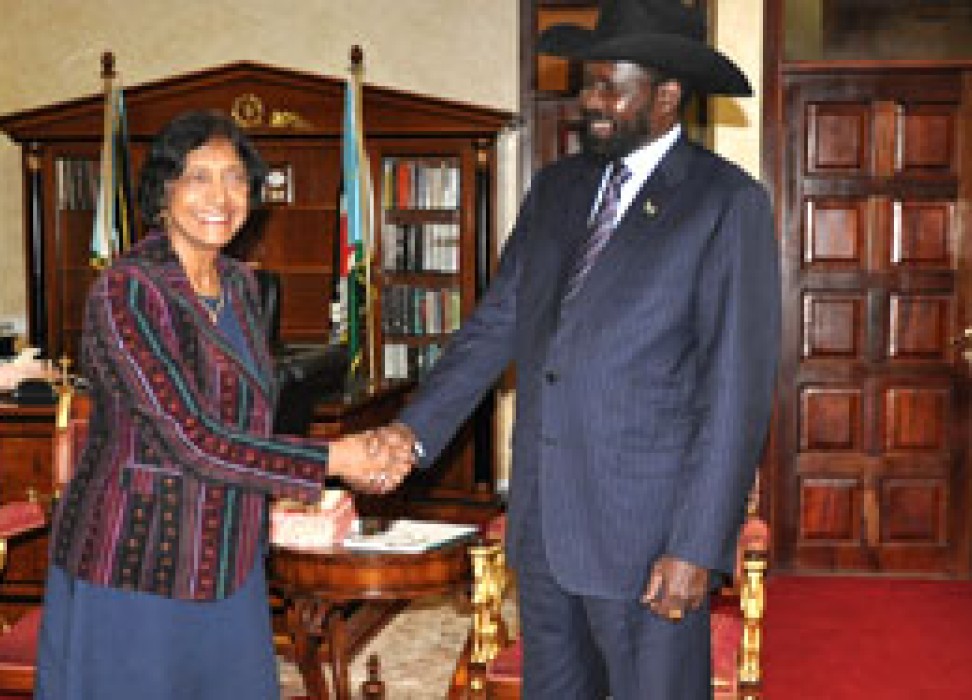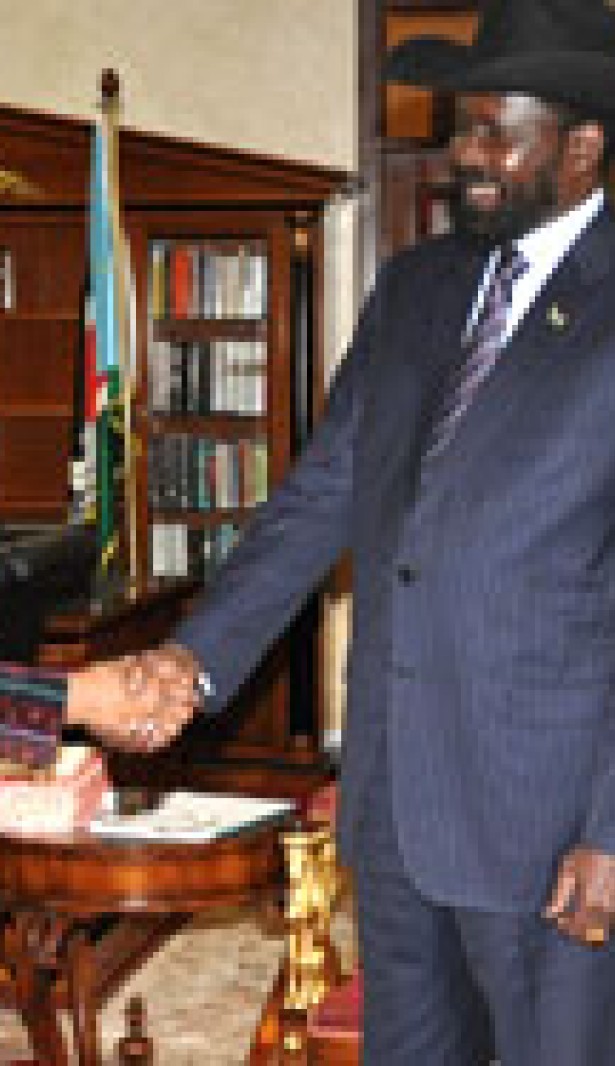Sudan border disputes, a cause of human rights concern
10 May 2012

The UN High Commissioner for Human Rights Navi Pillay has said the current border conflict between Sudan and South Sudan is a challenge to human rights because it is affecting civilians.
Speaking in the capital of South Sudan, Juba, after meeting with President Salva Kiir, she also said she was concerned that current austerity measures in the new country reached as a result of a shutdown of oil production by South Sudan will mainly impact on the most vulnerable.
“The President raised what is happening at the borders – the conflict there – and of course it is a human rights challenge because civilians are affected... He explained why they were forced to take the decision on cutting the oil supplies and I am concerned that these austerity measures will impact people who are most vulnerable – that is women, children, workers, and he assured me they have structured their policies so that education, health and matters like these will not be affected.”
Pillay is in South Sudan on a five day visit from 8-12May.
During her mission to the world’s newest State the Human Rights High Commissioner is discussing the protection of civilians amid the hostilities that have periodically flared up along the border with Sudan since South Sudan became an independent State in July 2011. Other disputes between the two countries continue to impact on the security and well-being of civilian populations on both sides of the border.
The High Commissioner is also discussing a range of other human rights issues including the inter-communal violence within South Sudan, especially in Jonglei State where she is visiting the state capital Bor on Thursday. She will also address economic and social issues arising from decades of conflict and underdevelopment, and many other issues relating to the building of laws and institutions with a sound human rights base in the new country.
During her visit May the High Commissioner also held meetings with the Speaker of the National Assembly and the South Sudan Human Rights Commission, and others key ministers.
10 May 2012

VIEW THIS PAGE IN:
